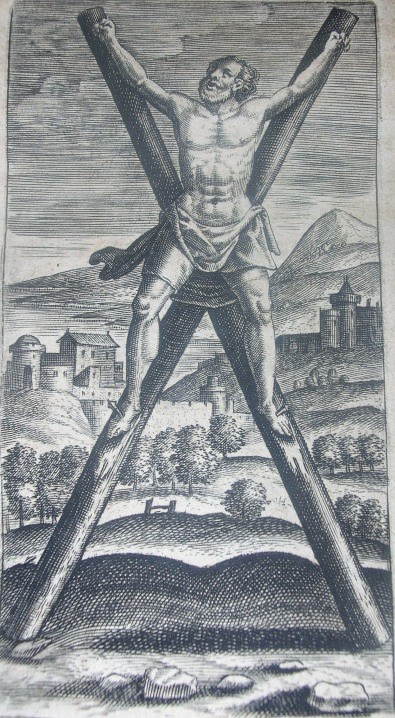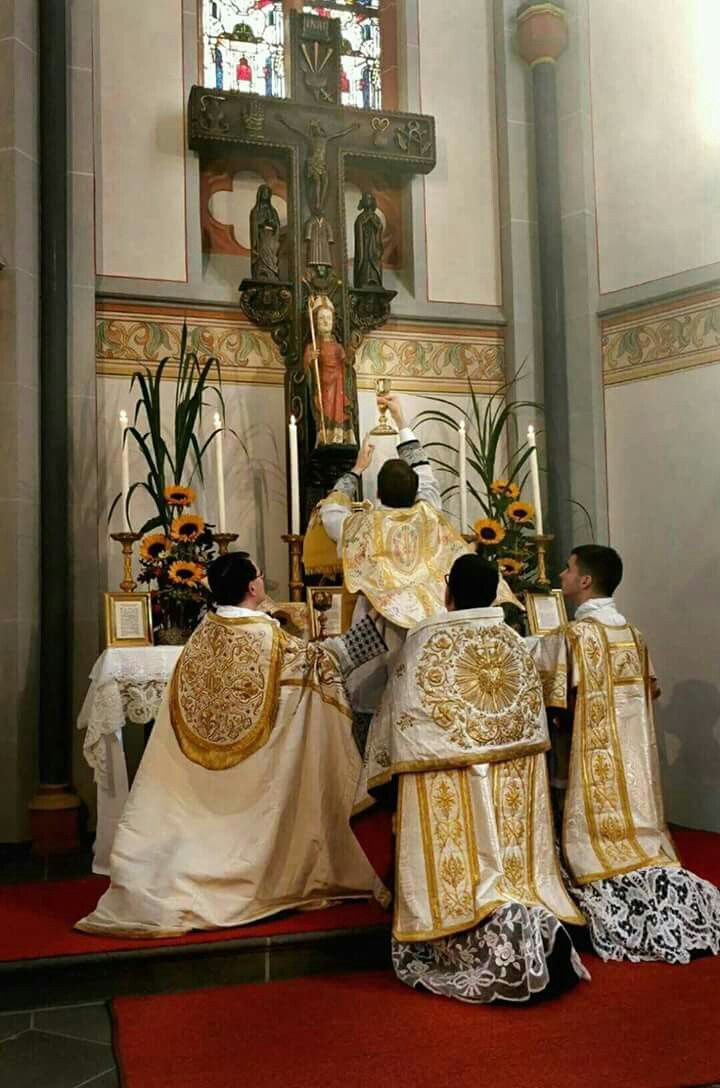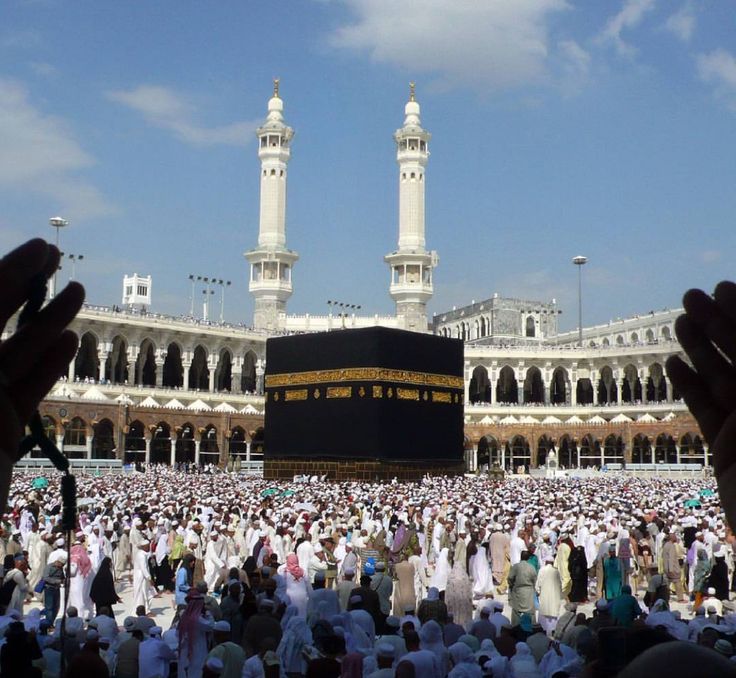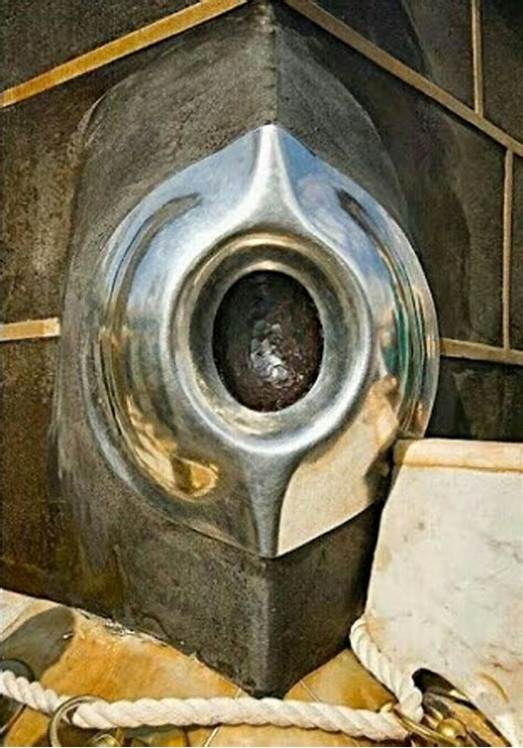Bible Code: The Gods of Wood and Stone
It is the object of this work to seek the answers to the Bible codes concerning the idol-worship as found in Deuteronomy 4. In the following, we would like to touch upon those obscure passages in the Hebrew Scripture that much have been avoided in the traditional commentaries, as we will address them in due course. In this endeavor, we are fully aware that we cannot remove all the difficulties we will come across, but it is worth trying, as the reader will understand below. The matter can best be understood in connection with what the medieval Spanish Torah commentator Rabbi Avraham ben Meir ibn Ezra, had to say in his commentary on Exodus 20:2. In his words: “Many people think that with the exception of idol worship there are no sins connected to thought. The truth of the matter is that idol worship is worse than all the other mental sins put together”. With that said we do not ask the reader to substitute our judgment for his/her own but to consider what we intend to say below.
Consider the unique standing of the Book of Deuteronomy in the Torah. Mosheh at the end of his life warned the people to be aware of what they had indeed seen at the mountain, saying,
And the Eternal commanded me at that time to teach you laws and ordinances, for you to do them in the land which you pass over to possess. Therefore, diligently guard yourselves, for you saw no form when the Eternal spoke to you at Horev out of the midst of the fire. (Deu 4:14-15)
The first words in Deu 4:15 in Hebrew are v’nishmartem me’od l’nafshotechem, which literally means “and you should protect yourselves very much”. The question is why? “For you saw no [physical] form when the Eternal spoke to you lest you should do corruptly and shall make for yourselves a graven image in the form of any figure – the likeness of [human] male or female” (Deu 4:15-16). [Bracketed words added to the translation for even more clarity.] And since the people had been reminded that even during the revelation at Mount Sinai, they had never seen a visual image of the Eternal, how much less are they allowed to fashion any likeness of Him as a human.
Foreseeing that the people would do exactly that, Mosheh warned them that when the next generations would grow old in the land, they would make graven images that would be evil in the eyes of the Eternal to provoke Him to jealousy. Then the heavens and earth would come as witnesses against them, and they would completely perish from the Land (Deu 4:25-26). The greatest prophet did not use the word “if” [which would be here more appropriate, if he was speaking hypothetically], but “when” because he was prophesying about the future. With these words he did not to the generation he was addressing at Mount Nebo in Moav that they would forget, for he knew that they were in strong hands (Yehoshua’s). What he was concerned about was the future generations, who had not witnessed to the Revelation at Mount Sinai, that would take the Land for granted. Thus, these words of Mosheh sounded not only like a warning but also as a prediction: they would be led astray to worship man-made images that would anger the Eternal.
And when that would happen, the Eternal would scatter them as the four winds of the heaven for many years as a minority among the nations without a priest to instruct and teach them the Torah. Of those that would survive would worship man-made gods of the gentiles: idols of wood and of stone; they pray to them thinking that these idols have the power to help.
In his last address to the nation, Mosheh warns the future generations that no idol in this physical universe is able to do anything unless it has first been enabled by the Creator to mesmerize the idolaters (See Deu 13:1-3). Mosheh predicts that some of the Israelites would go after the idols of the gentiles, as Ketubot 110 b states: “He who dwells outside of the Land is as if he worshipped the idols [of the land]”.
Bible codes in Deuteronomy 4
The Hebrew text of Deuteronomy 4:27-28 reads as follows,
Verse 27
וְהֵפִיץ יְהֹוָה אֶתְכֶם בָּעַמִּים וְנִשְׁאַרְתֶּם מְתֵי מִסְפָּר בַּגּוֹיִם אֲשֶׁר יְנַהֵג יְהֹוָה אֶתְכֶם שָׁמָּה׃
Verse 28
וַעֲבַדְתֶּם־שָׁם אֱלֹהִים מַעֲשֵׂה יְדֵי אָדָם עֵץ וָאֶבֶן אֲשֶׁר לֹא־יִרְאוּן וְלֹא יִשְׁמְעוּן וְלֹא יֹאכְלוּן וְלֹא יְרִיחֻן׃
Which translates into English: “The Eternal will scatter you among the peoples, and only a scant few of you shall be left among the nations to which the Eternal will drive you. There you will serve gods of wood and stone, made by human hands, that cannot see or hear or eat or smell”.
Is this choice of words significant for how these verses are understood? The choice to use the words “gods of wood (singular) and stone (singular)” instead of more generic expression in plural in this verse is probably deliberate and bears some significance, for Torah’s use of words is never incidental. This compels us to turn to the deep level of the Bible code.
Starting at letter yud in the first word of verse 27 and counting every 49th letter from right to left (in orange), spells out “Yeshu”. Where the code “Yeshu” ends the next Bible code starts. Starting at letter mem in the fifth word from the end of verse 28 and counting again every 49th letter from left to right (in green), spells out מַכָּה makkah. In Hebrew, makkah is a noun meaning “blow”, “wound”, “slaughter”. But in Arabic, “Mecca” is the holiest place for Islam.
This will be further explained in the interpretation of the Bible codes, when we return. What should give us pause here, however, is the code “Yeshu”. This code calls for a deeper interpretation.
Bible codes in the Covenant
The Bible codes in Deuteronomy 4 can be explained in consonance with the codes found in the next chapter.
The Ten Statements (The Covenant), as they appear in Exodus, represents the words of the Eternal. Only they [and not the words in Deuteronomy] are written on the tablets of the Covenant with the finger of the Eternal: the tablets Mosheh brought down from Mount Sinai. Deuteronomy is the words of Mosheh. When Mosheh renewed the Covenant with the new generation that was about to enter the Promised Land (in Deuteronomy), he reworded some of the commandments with explanations. Such a small rewording is found in Deuteronomy 5:9, where we read starting in verse 8,
You do not make for yourself a carved image, any likeness of which is in the heavens above, or which is in the earth beneath, or which is in the waters under the earth, (Deu 5:8)
You shall not bow down to them or serve them. For I, the Eternal your Elohim, am a jealous El, visiting the [intentional] sin of the fathers upon the children, and* upon the third and upon the fourth [generations] of those who hate Me. (Deu 5:9) *The word “and” is not in the Exodus text.
The Hebrew text of verse 9 reads as follows,
לֹא־תִשְׁתַּחֲוֶה לָהֶם וְלֹא תׇעׇבְדֵם כִּי אָנֹכִי יְהֹוָה אֱלֹהֶיךָ אֵל קַנָּא פֹּקֵד עֲוֺן אָבוֹת עַל־בָּנִים וְעַל־שִׁלֵּשִׁים וְעַל־רִבֵּעִים לְשֹׂנְאָי׃
Note: The Hebrew word for Yerushalayim (Jerusalem) can be spelled either ירוּשׁלים or ירוּשׁלם (without yud), as it appears in here in the Bible code (the fourth word from the end).
Starting at letter yud in the sixth word from the end and counting every fifth letter from right to left (in orange), spells out “Yeshua”. Starting in the word where the code “Yeshua” ends and counting from letter yud (in the second to last word) every third letter from left to right, spells out the word “Yerushalayim”. For the above-mentioned reason, namely, Mosheh reworded the words of the Eternal (with one small slight variant), these codes cannot be found in Exo 20:3-6, wherein we read the original commandment,
You shall not bow down to them or serve them. For I, the Eternal your Elohim, am a jealous El, visiting the [intentional] sin of the fathers upon the children, upon the third and upon the fourth [generations] of those who hate Me. (Exo 20:5)
Compare to what Mosheh said in Deuteronomy,
You shall not bow down to them or serve them. For I, the Eternal your Elohim, am a jealous El, visiting the [intentional] sin of the fathers upon the children, and* upon (Hebrew וְעַל) the third and upon the fourth [generations] of those who hate Me. (Deu 5:9)
Note: *The word “and” (letter vav in Hebrew) is not in the Exodus text. Hebrew in Exodus reads עַל־שִׁלֵּשִׁים “upon the third”, while Deuteronomy reads וְעַל־שִׁלֵּשִׁים “and upon the third”. This makes the Bible code in Deuteronomy inapplicable in Exodus. Why is that?
The first four books of the Torah are the words of the Eternal spoken to the people through His servant Mosheh. Devarim (Deuteronomy), however, is Mosheh’s book, his work. Devarim is not mere conclusion of Torah, nor its repetition, but personal expression of the first four books in Mosheh’s own words, hence Devarim (Words). Instead of speaking through Mosheh’s mouth, in Devarim the Eternal spoke to the people through Mosheh’s heart, who in turn spoke to the people. This does not invalidate the words of the greatest prophet Israel has. Both statements are in fact the words of the Eternal, for He spoke to Mosheh as one speaks to his friend: face to face and mouth to mouth.
Let us return to our immediate problem to complete what we commenced to explain in the beginning. How do we interpret the Bible codes found in Deuteronomy 4?
The interpretation of the two Bible codes is difficult and painful to discern. The Torah did not wish to lead the reader to prematurely conclude that the code “Yeshu” associates with Yeshua HaMashiach. It is for this reason that what has been revealed in Chapter 4 is immediately followed by what is revealed in Chapter 5. We should not therefore err to regard this code isolated not only from the codes in Deuteronomy 5 but from all other codes we have discussed and explained in other places until now.
The background on the surface of the Hebrew text makes it clear that the exile of Israel will serve two gods of the gentile: a god of wood and a god of stone. What are they?
With the destruction of the Temple in the first century, the Judeans were dispersed to the four corners of the Roman Empire: east and west, south and north. The Romans had gods for almost everything, but the supreme of them was Jupiter: the equivalent to the Greek Zeus. Jupiter was the chief deity of Rome until the onset of the Christianity. Emperor Constantine established Christianity in the Roman Empire by the Edict of Milan (313 C.E.) to become the state religion of the Roman Empire in 380 C.E. The new symbol of the new state religion became a wooden cross. The crucifix was instrumental in the Roman Empire for capital punishments, as well as a religious symbol among many others. The Babylonians used the crucifixion for human sacrifices to their deities. The Greeks adopted it and turned it into an instrument for punishment. The Romans perfected the crucifixion to become the most terrible way to end human life. But in 380 C.E. that was changed; the cross became the religious symbol of Rome.
When the host countries make idols [of art], such as icons of saints, statues, frescos, they represent matters of heaven compatible with the dogmas of the Church. The gentiles pray to them thinking that these idols have the power to save standing as mediators between men and God. Thus, the cross of wood became like “God of wood”.
In Islam, however, there are no such idols, for this religion is completely monotheistic except for “God of stone”: the Black Stone of Mecca.
The Kaaba (also al-Ka’ba al-Musharrafa) is a black stone building at the center of Islam’s most important mosque and holiest site, the Masjid al-Haram in Mecca, Saudi Arabia. It is considered by Muslims to be the Bayt Allah (“House of God”). Muslims from around the world come to Mecca to go around the Kaaba in worship. The Black Stone of Mecca is a rock set into the eastern corner of the Kabbah.
The encoded word “Yeshu”, as it appears in the Bible Code in Deuteronomy 4, is the Aramaic equivalent of the Hebrew “Yeshua”, which is a shortened version of the name “Yehoshua”. Note that this Bible Code does not say “Yeshua” but “Yeshu”. Why is that? By using “Yeshu” it seems that the Eternal has meant to allude to a foreign one who will be worshipped as an idol on wood in the place of the true Yeshua encoded in the Ten Commandments in Deuteronomy 5. The reason for using “Yeshu” is that there is no way to incorporate the Greek “Iesus”, the Latin “Yesus”, or the Anglo-Saxon “Jesus” (which are all foreign substitutes for “Yeshua”) in Hebrew. Since “Yeshu” is a foreign word for the Hebrews, it serves to convey the idea of an idol the gentiles have created in the place of the true one. As for the “god of [black] stone”, this is apparent to the understanding that this refers to Mecca.
With the above in mind, we may now understand the statement Mosheh made,
And you shall know today and shall recall to your heart that the Eternal Himself is Elohim in the heavens above and on the earth beneath; there is none else. (Deu 4:39)
This is all explained in our commentary in various articles in the series “The Oneness of the Creator”, “The Messiah”, and “The Bible Codes”.
Knowledge known to only a few will die out. If you feel blessed by these teachings of Time of Reckoning Ministry, help spread the word!
May we merit seeing the coming of our Mashiach speedily in our days!
This page contains sacred literature and the Name of the Creator. Please, do not deface, discard, or use the Name in a casual manner.




